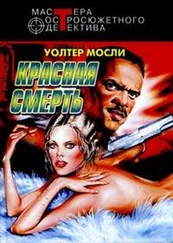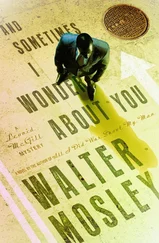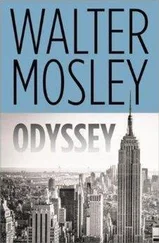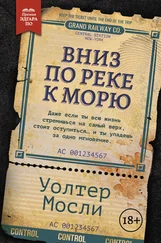One afternoon, while Colette was seeing a doctor in Long Island City, Cornelius came home to find France Bickman sitting at Herman’s bedside.
Cornelius fell into the kind of thinking his father had instilled. When following an idea, event, or person in history, the historian always looks for the anomaly. Therein lie the secret moments of history, Herman Jones said. Catching this moment separates the monumental thinker from the mundane.
“Hi, Mr. Bickman,” Cornelius greeted as he did each evening at the Arbuckle.
“Hello there, Cornelius. I just came by to say hello to your pops.” He stood up and shook CC’s hand.
After Bickman had gone Herman said, “He’s a very good man, that France.”
“Does he come by very often, dad?”
“Once a week or so.”
“Once a week? Why didn’t you ever tell me about that?”
“I am still the father, Cornelius. There was no reason to tell you because it is none of your business.”
“I guess not.”
“What are you doing home this early anyway?”
“I got a headache and couldn’t think. I just left.”
“You walked out of class?”
“No. I waited for the passing period and came home. I wanted to get some sleep before I had to go to work.”
Cornelius knew his father would understand the implication. He was doing everything except for the housekeeping done by Violet Breen... Violet Breen... the anomaly.
The following Tuesday Cornelius stayed home feigning a sore throat. When Violet came in at ten o’clock, he was waiting at the door.
“Where is my mother, Violet?” he asked without even a hello.
The hefty Irish immigrant looked down at the floor. Cornelius noticed the lovely turn of her face, something he had not registered before.
“I’m sorry, young Cornelius,” she said. “But I don’t know.”
“How does she pay you?”
“Pay me? She doesn’t.”
“Then why do you still come around?”
Violet looked up into the young historian’s eyes as if pleading for him to understand. And he did understand. This woman from across the ocean had fallen in love with the man whose great-grandfather had been a slave on the Russell Plantation in south Mississippi.
“You do it for free?”
“I do it because my father used to read us children poetry every night before bed. No one has read to me since then and no one would if it weren’t for your dear father.”
Three days later Cornelius came home to find Herman bent and naked, crying on the kitchen floor.
“Dad, what happened?”
“Peanut butter wasn’t in the pantry. Bread wasn’t in the box like it used to be. Fell when I couldn’t find it. Fell.”
Cornelius called 9-1-1. In the back of the EMS van CC held Herman’s hand while the old man cried out in pain from the jostling of his brittle bones.
The doctor who attended Herman after the emergency hip replacement said that men in his state of poor health didn’t usually recover fully.
“He’ll have to be put in a home,” the doctor told him, “a man his age—”
“He’s only fifty-four, Doctor.”
“Oh. He seems so much older.”
“I have to take him home.”
“I’m sorry, young man,” the pear-shaped, bald, middle-aged white man said. “He’s not well enough to release and not sick enough to take up a hospital bed. We are compelled by state law to put him in a nursing facility.”
While they spoke Herman moaned a dirge.
“Herodotus, record me,” he sang. “But will you, can you, tell of my forebears?”
“I have to take him home where he knows his surroundings,” Cornelius said.
“The paperwork will take ten days at least,” the doctor replied. “If he can walk under his own power by then, okay. But I’m sure you’ll see he’s beyond that.”
After the doctor left, Cornelius pulled up a chair to his father’s bed, determined to resurrect his mind.
“Dad.”
“After the alpha comes the theta,” he said. “But not necessarily.”
“Dad, it’s me, Cornelius.”
“It is.”
The boy smiled.
“Dad, you have to get up or they’re going to send you to a nursing home.”
When Herman heard these words his face took on a conspiratorial look.
“I was in the forest pines and spied a man dressed all in black,” he said.
“What man?” Cornelius asked hopefully.
“He did not have a name but he was white and there was hair growing under his chin.”
“He must have had a name. Everybody has a name.”
“No,” Herman said sadly. “He had no name or home or even a past. He was standin’ in the forest lost to the world and to hisself.”
“What happened to him, dad?”
“Who are you?” Herman asked then.
“Cornelius. Your son.”
“That ain’t a real name,” Herman said with a smile. “It’s a vegetable wit’ some silk hangin’ ona end of it.”
Herman giggled.
“What about the man in black?”
“The black man,” Herman corrected.
“You said that it was a white man dressed in black.”
“That’s what they want you to think,” Herman warned. “They want you to think that they is wolves in sheep’s clothin’. But they ain’t. They just Negroes. Niggers.”
“So it wasn’t a white man in the pines that you saw?”
Herman began to cry. His body shook and he grimaced in pain. Tears rolled down his gaunt cheeks.
“Are you scared of the black man in the pines?” Cornelius asked.
Herman could not answer. So Cornelius took out a copy of The Prince and began to read aloud. Within minutes his father was asleep.
Cornelius studied the medical charts at the foot of the bed then went off to work.
Next afternoon, in the apartment with Colette, he defeated her in a wrestling match for the first time, handcuffing her wrists to the foot of the sofa.
He pressed down on her, making love slowly while she struggled and moaned.
Afterward they sat on the couch and talked about Herman.
“I went to see him this morning,” CC said, “before I came here.”
“What about school?”
“Fuck school. They want to put my father in a nursing home.”
“Can they do that without permission?”
“If he’s out of his head and can’t walk. I have to have him on his feet in seven days or they’ll move him to a nursing home and I’ll never get him out.”
“I’ll do whatever you need, baby,” the detective said. “Just leave it up to me and we’ll get your father out of there.”
“How?”
“I don’t know but we will.”
CC took her hand and lowered his head.
“You know I went to the doctor the other day,” she said after a while.
“Uh-huh.”
“It was a fertility doctor. Harry and I are getting married but he has a low sperm count so I had a treatment that will help — you know?”
“You’re getting married?”
“I’m thirty-one, honey. I don’t have that much time.”
“But you could... what about us?”
Colette smiled and caressed his cheek. “You’re just a boy, CC. There’s a whole life out there for you to live. What would it look like me marrying a seventeen-year-old kid? They’d put me in jail for sure.”
A feeling of distance descended on Cornelius. It was as if Colette had been shifted a thousand miles and a thousand years away. He fondly remembered the love they had shared. But she was gone; also his school and job and the corpse he sat next to every evening at work. All in the distance, history.
“I guess,” Cornelius said. “Yeah. I got to go, Colette. My father needs me.”
She touched his arm and asked, “Do you want me to hold you?”
“Not right now.”
“The black man did not see me,” Herman said on the fourth day since the story began. “I followed him deep in the woods. He looked sneaky and me and your mother thought he might be a pimp.”
Читать дальше












